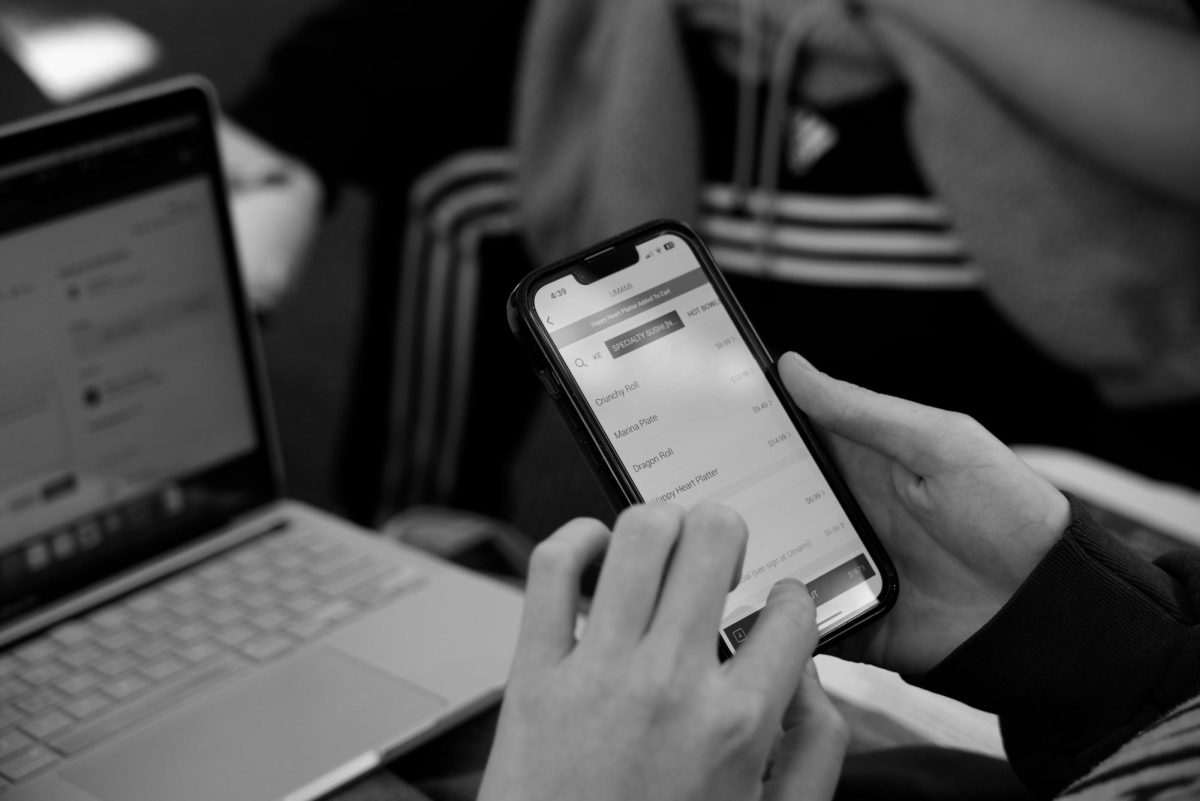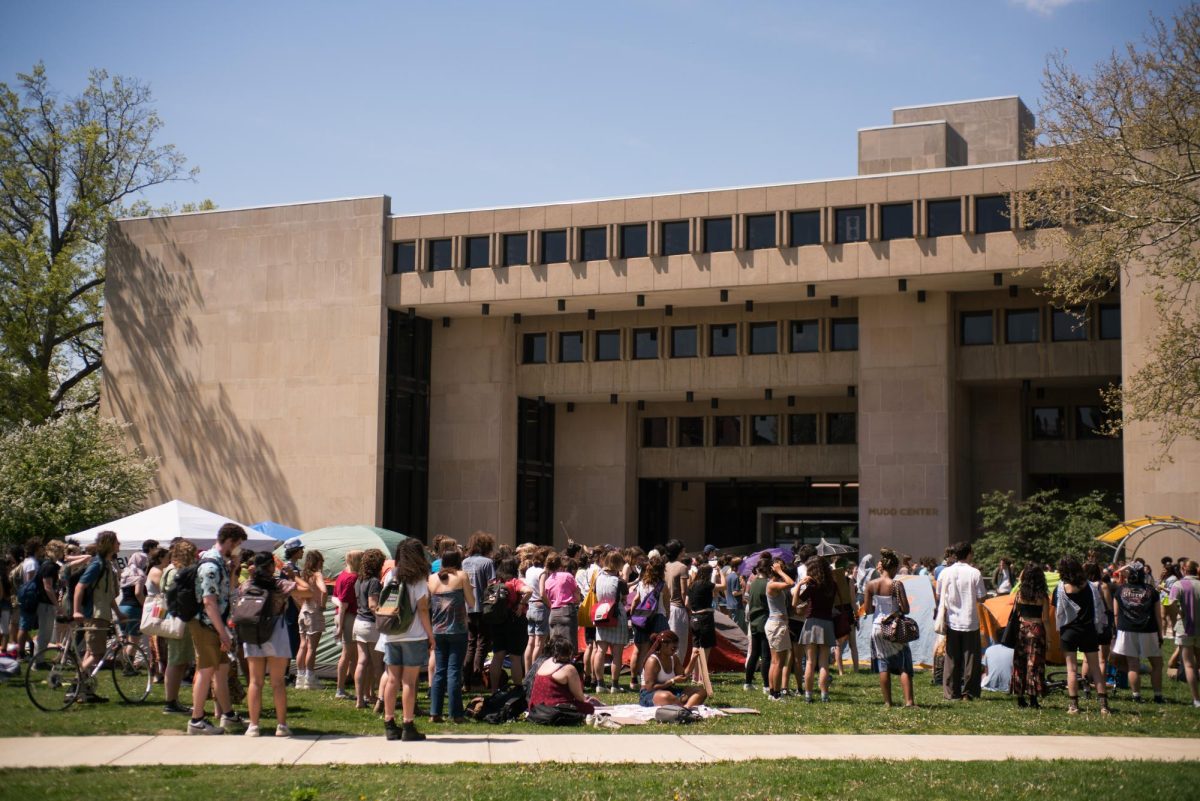Two years ago, campus dining looked a little different. Instead of alphabetically organized orders lining the counter of Azariah’s Café and a table in front of the Rathskeller, long lines extending into the library or down the hallway were a common sight. Now, these winding queues are obsolete, replaced by to one simple phone app: Transact Mobile Ordering.
Much has been previously written about Mobile Order. From our perspective as students who have talked to other community members, it seems like opinions on the app are divided. Some people appreciate the convenience of being able to pick up a meal or a cup of coffee without having to wait in line. Others say that reliance on Mobile Order has contributed to “longer wait times, … increased food waste, and the elimination of positive social interaction between workers and students” (“Students Raise Concerns over Wait Times, Human Interaction Amid Azariah’s Shift to Mobile Ordering,” The Oberlin Review, March 8, 2024).
However, we think there’s a subtler point that has been getting ignored in this conversation. Whether or not you like using Mobile Order, it has become the only way to order from Azzie’s and the Rathskeller. And because the ID Card Office no longer issues physical ID cards except in rare circumstances, Oberlin students need to own a smartphone in order to practically function on campus. A student without a smartphone could choose not to go to the Rathskeller or Azzie’s, but they would be unable to access two of the most convenient dining options on campus. That student would also have to purchase an external two-factor authentication key to access Okta Verify, costing them around $20–40, depending on the type of port and other features it supports.
The inconveniences of navigating Oberlin without a smartphone are clear. Although 95 percent of teenagers own a smartphone according to the Pew Research Center and both of the authors of this article own smartphones and appreciate the many undeniable conveniences they offer, there are many negative side effects from constantly carrying around a smartphone as well. We have realized that smartphone use has led to us getting distracted and pointlessly wasting time. We want to try to use our phones less, and are not alone in this quest. There has been an increasing effort from young people to switch to flip phones and “dumb” phones in order to escape reliance on smartphones. In addition to the massive time suck they can be, increased and excessive smartphone usage has been linked to increased depression, anxiety, and symptoms related to OCD and ADHD.
Despite this, we’re not advocating abandoning our smartphones completely, but rather taking a more middling approach to the issue. As young people who have grown up in a world ever more influenced by technology, we believe that it’s worth interrogating the role of technology in our lives. This kind of interrogation and critical thinking is all but impossible when you are required to carry your mobile device with you everywhere.
We have no reason to believe Oberlin is purposefully encouraging this kind of relationship with technology, but they have nonetheless implemented policies that do so. We find the lack of consideration of these problems on behalf of the College to be problematic. Though Oberlin is an institution with a long-standing commitment to social change, it seems to have uncritically accepted the normality of constantly carrying around a smartphone. We understand the school has reasons to believe in the switch to mobile; they claim that mobile IDs are more secure and sustainable, and AVI Foodsystems has implemented mobile ordering at many other institutions they work with — we don’t know how involved the school has been in this particular change.
However the school has not, to our knowledge, made an effort to advocate on behalf of students for policies that encourage healthy and critical relationships with technology. They have unilaterally set the school on a course where every student will be forced to have a smartphone with them at all times, and they have done so with little transparency. We could not find the policies about Mobile IDs discussed concretely online, only how to sign up for and use them, and nowhere is it clear that they are the default option for all incoming students.
We don’t believe mobile options should be completely disregarded. They should instead just be kept as such: options. When interacting with technology, it is paramount that each individual has the freedom to choose how and when they use their smartphones. A simple way for the school to change course on this issue would be to return to a “hybrid” system of food ordering: Mobile Order could remain an option along with in-person ordering at the Rathskeller and at Azzie’s. Removing this choice creates pressure to rely on one’s smartphone, and we’d like Oberlin to remain a place where critically thinking about our relationship with technology is valued.











